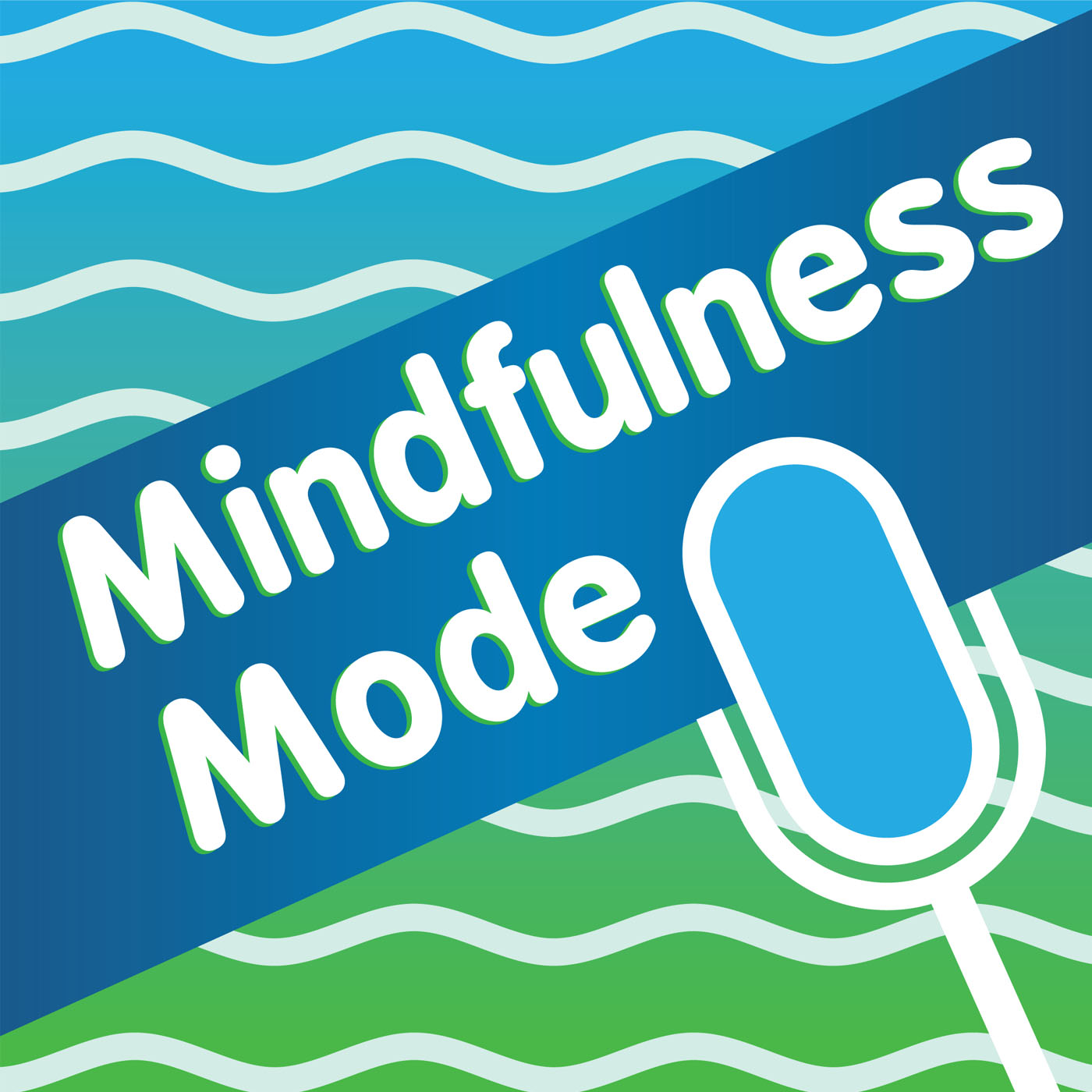
Karl Staib is a passionate believer in gratitude. He struggled with staying positive, especially during the time his father was dying. He could feel old habits starting to creep back, including a tendency toward insensitivity and complaining. Karl decided to challenge himself to be more grateful, and to take his gratitude even further, he began to journal and adopt a daily gratitude practice. His new writing routines turned into a book called, Bring Gratitude, and his lost joy began to magically slip back into his life. Science indicates that a healthy gratitude practice can improve relationships, resilience, and even sleep patterns. Even more impressive, regular gratitude can help deliver momentum during times of challenge.
Listen & Subscribe on:
iTunes / Stitcher / Podbean / Overcast / Spotify
Contact Info
- Website: www.BringGratitude.com
- Youtube: https://www.youtube.com/user/KarlStaib
- LinkedIn: https://www.linkedin.com/in/karlstaib/
- Twitter: https://twitter.com/KStaib
- Book: Bring Gratitude: Feel Joyful Again with Bitesized Mindset Practices by Karl Staib
Most Influential Person
- Oprah / Eckhart Tolle / Dale Carnegie / My friend, Rob
Effect on Emotions
- I still get sad, I still get down. My inner bully does rear its ugly head. I call my inner bully Arnold. It's helped me pause and appreciate these moments, even my inner bully, because if you can appreciate your inner bully, that's when you can start loving yourself and bring gratitude into your life.
Thoughts on Breathing
- I am a daily yoga and meditation practitioner. Breathing connects me and grounds me to myself. A lot of times I'll pulse check myself just to see where my breath is at and where my heart is at and if I need to do some deep breathing just to relax myself.
Suggested Resources
- Book: Bring Gratitude: Feel Joyful Again with Bitesized Mindset Practices by Karl Staib
- App: Headspace / Evernote or Google Docs
Bullying Story
- My dad got so upset with me and he lifted me by my ears onto my tippy-toes and I'll never forget that because it was traumatic. I felt very small and weak and this was at a time when I was 14 and was wanting to be big and strong.
- I was completely dominated by my dad at that moment. Now as I look back, I learned from that would never do that to my kids. We have conversations, we talk, it's ok if they disagree with me. It's not ok if they do whatever they want to do, but it's ok if they voice their displeasure.
- Another example is when I was in high school and was going to sit on the school bus, wanting to be a cool kid, but far from it. [I was] very middle of the pack, kind of dorky, just kind of feeling non-existent.
- I got onto the bus and my friend was there. I sat down and he was picking on the kid in front of us and I started chiming in, trying to be cool.
- He turned around after me saying one or two things. He'd had enough because I think he'd been picked on for the last 10 or 15 minutes. He started punching me in the face. And to my surprise, I did not know what was happening ten minutes before I got on the bus but he started flipping out.
- I look at that time and how I behaved poorly and how I teach my kids to be kind and to share ideas and to help other people versus push them down.
Free Gift

More Episodes About how to Bring Gratitude:
www.MindfulnessMode.com/176 First Step To Happy Even If You're Paralyzed Says Meg Johnson
www.MindfulnessMode.com/57 Gratitude and Thankfulness Solo Weekend With Bruce
Episode Transcript
Note: The following transcript is a draft transcript, and as such, may contain computer-generated mistranslations.
Bruce:
Regular gratitude can help deliver momentum during times of challenge. And these times, there are certainly times of challenge, aren't they Carl? I mean, man, what a time. How are you doing?
Karl Staib:
Doing okay. Doing okay? I liked you said. Yeah. Locked down. Covert 19 as is upon us. I expected we, we won't just talk or I won't, I won't just talk about the Cova 19. I want this to be overarching and, and how important it is because I think we struggle daily. We struggled daily a year ago, two years ago. It's the human condition and it's what we work with. And one of the best ways to deal with it in process is gratitude.
Bruce:
Yeah. I absolutely agree. And I love how you started your book. You started with these words, you're not the same person you were a year ago. And why did you decide to start your book that way? Carl?
Karl Staib:
We are always changing. And I think it's so important to realize that gross should be a daily part of our lives instead of a new year's resolution or some big grand gestures that we that we strive for because it's the little things that add up the little habits that we build, the little mindset shifts that we make on a daily basis or improvements that we make is what brings us happiness. They've, I mean there's study after study is somebody gets a new, a new job, a new bump in pay and within a month or two they're back to their old set points. And that's, that's the stuff I want people to work on is this daily stuff that can really make that big, those small leaps into big leaps.
Bruce:
Well for me, gratitude is a huge part of mindfulness. But Carl, what does mindfulness mean to you?
Karl Staib:
It's about being aware. It's about understanding who we are and how we can stay present in the situation by not judging it. Not expecting too much from it. And just learning as we go.
Bruce:
Well, your book is terrific and I love chapter eight. You called it tough battery. Can you share with mindful tribe a little bit about that chapter and why you, you called it tough battery?
Karl Staib:
Yeah. I, I've been influenced by a lot of different writers but I think as I have grown and grown as a writer, I like the idea of, of how people put feelings or you know separate issues on inanimate objects. And so when I call it tough battery, eh, it's that battery to me, just as a symbol of where my mindset was. I was in a rush. I was trying to get into the house and I quit messing with this battery. It wasn't working. So I got a screwdriver and I was trying to open it up and I jammed it into my hand and I just wasn't being very mindful and thinking things through because as soon as I did it, I stopped and I realized like how impatient I was being in that moment and how I wasn't being grateful for the ability. And it was, it was a very small turning point, but B has become momentous because now even if I look back and I laugh at how I stabbed myself Kay screwdriver and how it's, how it's changed me and, and it improves how I look at things and how I process things.
Bruce:
Well, your website is called bring gratitude.com which is such a great name for a website and a, you know, I love how you've included so many tools in this book. I mean, it's a, it's an easy read. It's enjoyable to read because there are so many stories and you have a very easy to follow tone that you've written this book with, but you end with gratitude toolbox. Can you share a couple of the tools out of the toolbox, Carl,
Karl Staib:
Many little tools that we can apply. I think, you know, one of the most important things is, is building these habits, building these mindfulness habits that help us grow as a person and help us bring more joy into our lives. Now you'd like to think of it as joy versus happiness or instead of happiness. Because you know, joy is something that we can always tap into. Happiness is sometimes very elusive. And it's something that we strive for and we, we don't always reach, but joyfulness is just this calm place inside us that allows us to be present in the moment and feel the gratitude just for being alive. And so some of the tools that I teach my clients is look at a daily habits that you do. Let's look at brushing teeth. So every night you brush your teeth.
Karl Staib:
What do normally do as your brush teeth? You think about things you did that day, you worry about things you have to do tomorrow. Well, this is two minutes of your time that you can start making some mental shifts that can really help with your, with your joyfulness and your happiness. Start thinking about what are you grateful for those two minutes. And you know, you'll probably do it for a few days and I'll feel great. And this is where most people drop off. And then you've got to, if you can dig a little bit deeper. And this is what happened to me. I kind of hit that surface level of gratitude, which I think, you know, 90% of people do. But I think, you know, the great teachers out there, they, they go, they go deeper. They want to understand where their mindset and their neural structures are at.
Karl Staib:
And so as you, you know, if anybody's listening right now, brush your teeth for two minutes and just start listing things you're grateful for. And I suggest you do your why and your what if you can do your why eight makes it so much deeper. So you know what are you grateful for? You're grateful for being able to brush your teeth. You're, you know, you're both arms work or whatever dominant hand works and you can clean your teeth. That's one thing you're grateful for. Running water that you can rinse out your teeth with. You're grateful for your relationships. And now it's, the thing is, is we hit that point of like, well, what else am I grateful for? Start to think of different things that you're grateful for, different themes, like grateful for all the great books, all the great movies memories with friends future ideas that you want to work on. These are all things that we can be grateful for and we can apply in our lives. And it's these little tools you can use to really help shift your mindset and, you know, bring more energy. Cause what I've noticed is my energy level has gone up by a good 25%, since I've really deepened my gratitude practice and made it a daily habit.
Listen to hear the rest of the episode.
Don't forget to check out Karl's book:








